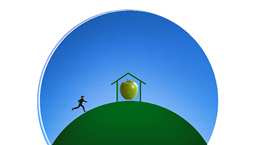
The New Scientific Breakthroughs:
How and Who
When we list our most important scientific breakthroughs, we usually note the discoveries of new evidence: ancient bones, DNA, black holes and medicines.
But could our biggest recent breakthrough be not what have found, but how we collaborate in our research?
There is a new paradigm for scientific research that could change how we study, what we study, and whether our research is useful in solving the problems it identified.
Community research grants offer communities and organizations a collaborative role in researching health and social problems, training in scientific investigations, and a shared communication of the results and implications of these studies. For communities, which have never been offered a role in research studies other than unpaid lab rats, this is a big deal.
These partnerships can help communities develop research and design interventions to improve the lives of their members and clients. For scientists, these partnerships offer keen insights into the social, economic and cultural factors which affect these issues and ongoing access to these programs for follow up research opportunities which can test the effect of interventions as they are implemented over time.
My favorite opportunity for these grants is at K-12 schools where students and college researchers could collaborate on issues which affect the health and learning of students, their families and communities. These collaborations could help enrich the science curriculum, develop mentoring partnerships that create bridges to colleges, and help schools become a locus for building healthy communities.
I love science and scientists, but I will not miss the high holy research design where lab coats and equipment appeared and disappeared without a trace save for a mention in a scientific journal or conference. The job of science is to create better understanding and better outcomes. When it descends from the tower of science, it is a valuable tool of positive social change.
I’m excited to see what we will learn, when we are learning together.

Leave a Reply